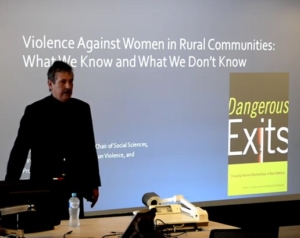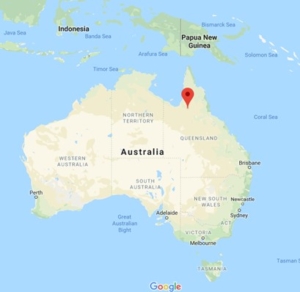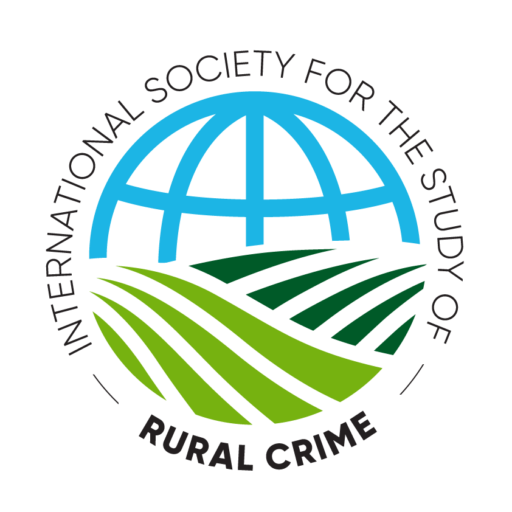ISSRC Blog
This blog provides an opportunity for pithy observations or reflections on topical rural crime news and developments, a summary of research, promotion of publications, advertisements for upcoming events… and more! If you would like to contribute, email a submission of no more than 500 words to admin@issrc.net
Illegal sand mining in India
Rural crime in different contexts
For many of us studying rural crime, thefts from farms, interpersonal violence in rural, regional and remote areas of the world, the scourge of alcohol and drugs in rural communities are no doubt the issues which spring most immediately to mind when thinking of particular examples of rural crime.
And because of the heavy concentration of scholarly literature which emanates from the United States, the United Kingdom and Australia most particularly – with localised studies and examples from those countries – we often neglect to consider the real and ongoing impacts of other forms of offending which impact rural communities in different international contexts.
For example, how many of us would be aware of the incidence, extent and impact of illegal sand mining in India?
Illegal sand mining in India
 Economic growth in India is supporting a growing construction boom worth an estimated $120 billion Australian dollars (£64 billion pounds sterling; $82 billion USD). And this is having an enormous environmental impact, contributed to by the illegal mining of sand which is proving crucial to the construction sector.
Economic growth in India is supporting a growing construction boom worth an estimated $120 billion Australian dollars (£64 billion pounds sterling; $82 billion USD). And this is having an enormous environmental impact, contributed to by the illegal mining of sand which is proving crucial to the construction sector.
With an insufficient quantity of sand available, supply and demand economics has led to sand being illegally extracted. Referred to as ‘India’s gold’, this illegality is the work of organised criminals dubbed the ‘sand mafia’. The Australian Broadcasting Corporation’s (ABC) Foreign Correspondent program produced an insight into this problem.
“India’s sand mining problem is so prevalent that it has developed into a black market that continues to exploit millions of tons of this commodity annually, in an open loot of the riverbeds, canals and beaches sand is being drained by illegal means.”
The sand is extracted from beaches, dunes and river beds for production of concrete, amongst various uses, but leads to significant erosion. In addition to the devastating environmental consequences, prevalent too is the corruption of public officials and underpayment or non-payment of royalties to government for mineral extraction.
Lack of data, though, masks the real extent of illegal sand mining in India.
This is a matter with grave consequences for rural communities. As rural crime scholars and practitioners, we need to expand our horizons and take greater interest in issues such as this.
Want to know more?
A series of articles from the Economic Times can be found here.
There is also some academic scholarship available as well: for ex ample, from Rege (2015), Rege and Lavorgna (2016) and Data and Bagchi (2018).
White (2013) offers a useful and interesting perspective on resource extraction from an environmental justice perspective.
Walter DeKeseredy: violence against women in rural areas

Walter DeKeseredy is the Anna Deane Carlson Endowed Chair of Social Sciences, Director of the Research Center on Violence, and Professor of Sociology at West Virginia University. He has written extensively on violence against women, and particularly applying a rural lens to this scourge.
Walter was recently in Australia, presenting at the University of Melbourne, Monash University and at the Royal Melbourne Institute of Technology (RMIT). At RMIT, he presented on the topic “Violence Against Women in Rural Areas – What We Know and What We Don’t Know” which you can view on Youtube.
You can access Walter’s extensive catalogue of works on Researchgate and on Academia.
‘poddy-dodging’
In Australia, the common term for the theft of cattle is ‘cattle duffing’ (the offender being a ‘cattle duffer’, and for the theft of sheep ‘sheep rustling’ (and a ‘sheep rustler’).
An informal expression for the theft of unbranded calves is known as ‘poddy dodging’, although the term is not used in regular parlance.
The origin of term is from the 1920s, formed from ‘poddy’ (in the Australian sense ‘calf’) and ‘dodge’. The culprit is a poddy-dodger. The practice most commonly occurs with the theft of young cattle, perhaps from a neighbouring property, which are then marked by the new ‘owner’ as their own.
In Croydon in Far North Queensland, an annual Poddy-Dodger’s Festival celebrates the town’s notoriety as Australia’s cattle duffing capital. You can read more about the festival here and it’s origins.
Stock theft, though, is a very serious matter with social and economic consequences – and rising meat and wool prices is contributing to the targeting of cattle and sheep.

Croydon, Queensland (from Google Maps)
